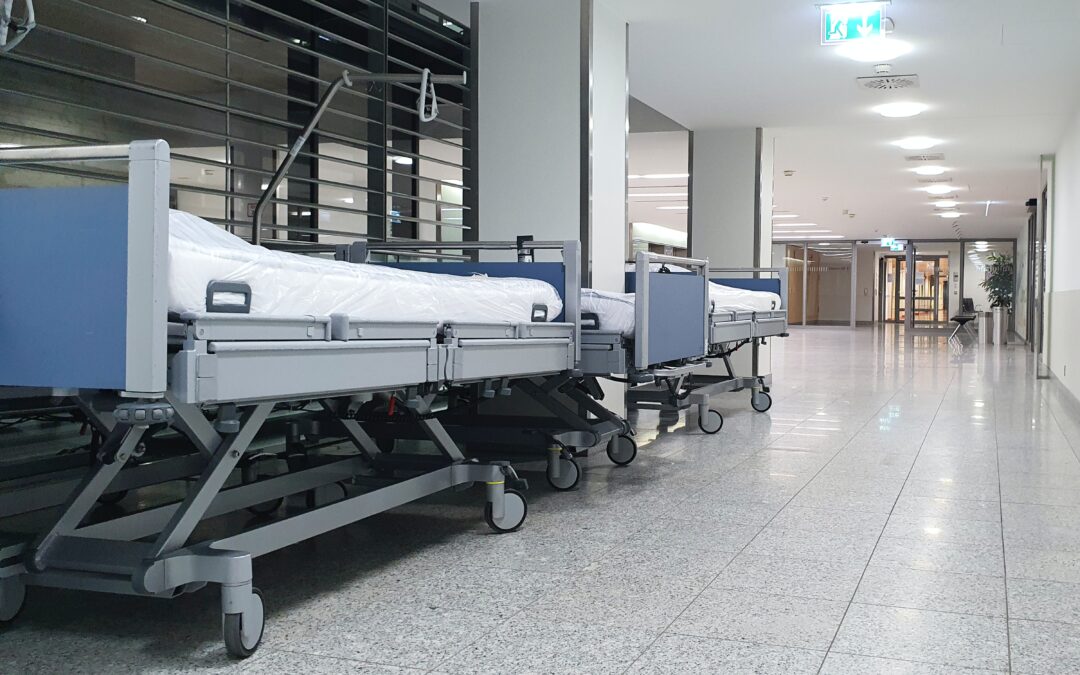The death toll has now risen to seven in an outbreak of legionella pneumophila, the bacterium that causes Legionnaires’ disease, in the Polish city of Rzeszów.
The source of the infections, which has led to 113 confirmed cases so far, has not yet been identified. In a bid to combat the further spread of Legionnaires’ disease – which is a form of atypical pneumonia – the city will disinfect its water supply network this weekend.
Już siedem osób zmarło na Podkarpaciu po zakażeniu bakterią #legionella – poinformował w piątek rano Główny Inspektor Sanitarny.https://t.co/pZohBgIjG8
— Rzeczpospolita (@rzeczpospolita) August 25, 2023
All of those who have died so far were aged between 63 and 95 and had preexisting medical conditions, including cancer and immunodeficiency, the sanitary inspectorate reported this morning, as it announced the latest two deaths
Most of those infected with the bacterium, 76 people, are from the city of Rzeszów itself, while 23 people are from its immediate surrounding areas. Further isolated cases have been identified in other parts of the Subcarpathian province in which the city is located.
All those infected have been hospitalised, and one person has so far been discharged after overcoming the illness.
A third person has died from an outbreak of legionella pneumophila, the bacterium that causes Legionnaires' disease, in Rzeszów. Over 70 people have been infected.
The source is still unknown but the city's water supply will be disinfected this weekend https://t.co/z8jzYnIP63
— Notes from Poland 🇵🇱 (@notesfrompoland) August 23, 2023
The authorities are investigating the source of the outbreak, but the first test results from samples taken from the municipal water supply will only be known on Monday. The waiting time for test results for Legionella pneumophila is up to 10 days.
Although the source has not yet been located, the sanitary services say it is most likely in Rzeszów itself. They note that even infected residents of neighbouring municipalities have been in the city frequently in the last three weeks, either because they work there or were running errands, reports news website Onet.
“In each case of people with confirmed infection or suspected infection, a very detailed epidemiological interview is conducted,” said Jaromir Ślączka, the director of Rzeszów’s sanitary inspectorate. “These interviews show that, apart from the water supply network and the use of water from it, there are no other common features.”
In response, the city has decided to close its swimming pools, fountains and drinking fountains.
This weekend, the authorities will also carry out a disinfection of the water supply system in Rzeszów and adjacent areas.
“A dose of chlorine will be injected into the network on Saturday; by Sunday it should have already spread throughout the network and decontaminated it,” said Rzeszów’s mayor, Konrad Fijołek.
“When, especially on a Sunday, we draw water into a container, whether it’s a kettle or a jug of some sort, it’s a good idea to let a little bit of that water drain first, and if you notice a higher amount of chlorine, you need to set that water aside for a little bit and ideally boil it,” he told residents.
ABW bada sprawę zakażenia legionellą w Rzeszowie.
Więcej: https://t.co/oXlKjspLPC pic.twitter.com/83kqAvK9Ba
— Fakty RMF FM (@RMF24pl) August 25, 2023
Today, broadcaster RMF reported that the infections in Rzeszów are being investigated by the Internal Security Agency (ABW), Poland’s domestic counterintelligence and security service.
Rzeszów and the region around it have since last year become the main transit hub for military equipment being transported to Ukraine. ABW officers are there to rule out the possibility that the water supply could have been deliberately contaminated, sources told RMF.

Notes from Poland is run by a small editorial team and published by an independent, non-profit foundation that is funded through donations from our readers. We cannot do what we do without your support.
Main image credit: adrian vieriu / Pexels

Alicja Ptak is deputy editor-in-chief of Notes from Poland and a multimedia journalist. She has written for Clean Energy Wire and The Times, and she hosts her own podcast, The Warsaw Wire, on Poland’s economy and energy sector. She previously worked for Reuters.



















